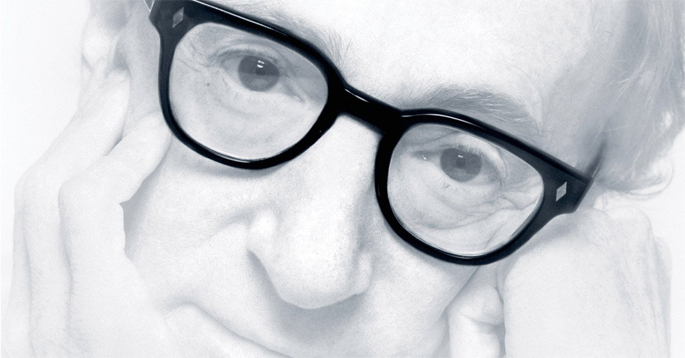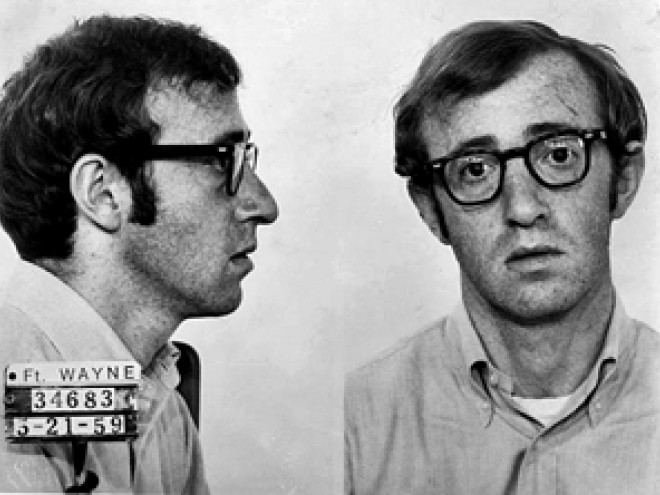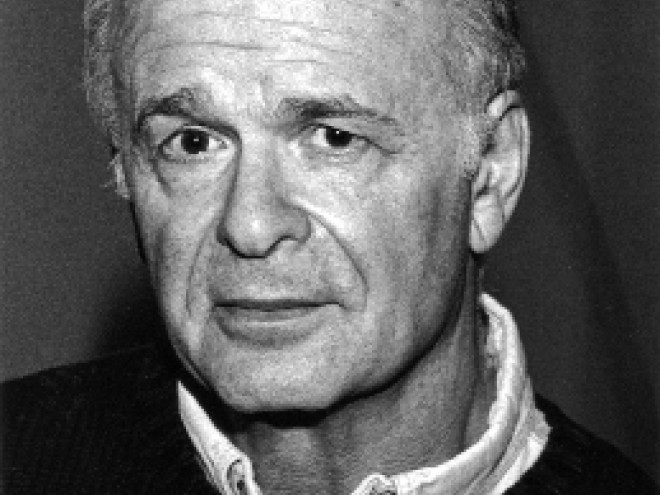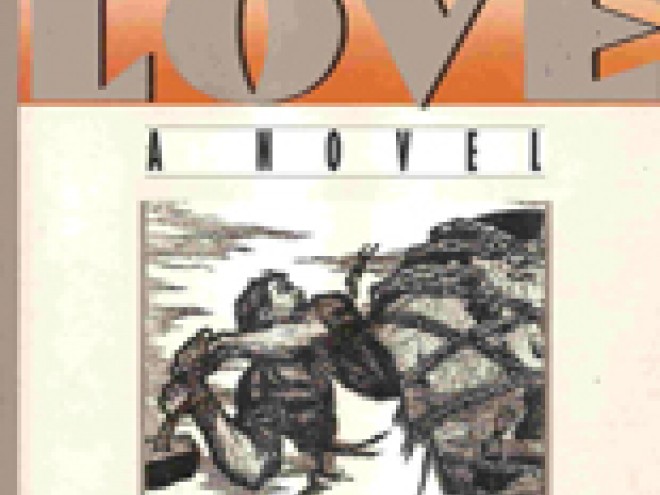David Evanier recently authored an unofficial biography of Woody Allen, and will be sharing what he learned about the famed comedian and director all week as part of the Visiting Scribe series on The ProsenPeople.
When I started writing my biography of Woody Allen in 2012, a writer I hadn’t heard from in years wrote me excitedly, “Tell! Tell!” I wasn’t sure I got her drift, so I wrote back asking her what was it exactly she wanted me to tell. She wrote back, “I was shocked! Shocked!”
Many years before she had sat at a table next to Woody’s at Elaine’s. She told me that he was seated with two other male friends and they were talking about sex and women. (Not that she was eavesdropping, of course.) Well, I wrote back gently that my life experience has been that when guys get together, this is a pretty normal topic of conversation for us. That was the end of our correspondence.
When I began Allen’s biography I decided that I would drop in on Woody and tell him about my book and also make it clear that I wasn’t writing the sort of thing that my shocked correspondent hoped for. So I rang his doorbell. I held a letter in my hand for him. A staff member looked down at me from the upper balcony and told me he’d be right down. He took my letter, smiled and said “Perfect.”
Well, that was nice, I was in. Not quite.
Allen answered me the next day. And many times more, while stating again and again that this was not an authorized bio. And it isn’t. That was even better from my point of view, since I did not want anyone peering over my shoulder checking what I was writing. This turned out well, especially since he really was a mensch, answering my emails (pleading with me not to leave more letters at his house) and finally meeting with me at the end.
At the start I was only a prying stranger to him and he responded warily, especially since he was committed to another biographer — I would come to learn that he is deeply loyal. And how many requests of this kind had he received over the years?
He bristled at my praise of Crimes and Misdemeanors and Zelig in that first letter. He was concerned that I would praise him for all the wrong reasons. He is extremely self-critical and certain he has never written a masterpiece on the level of a Rosselini, Fellini, or De Sica. As a true artist, he doesn’t care about his past work or about how his work is reviewed. He cares only about what he is doing now and what he will do next. Yet he answered me, again and again, and cared about my struggles as a writer.
His achievements — 46 films in 46 years, with a wide range of subject matter, from laugh-out-loud funny to poignantly, startlingly moving — are almost Shakespearean. Allen is a classic storyteller, not abstract or cerebral. He gives everything to his films, even the lousy ones. His continuity and high rate of productivity are unprecedented. He may be the most amazing phenomenon in the history of American show business. He has created indelible films that will stay with us the rest of our lives. And in all of these films Allen has been the writer, director and actor.
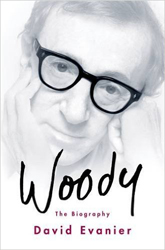 What did I discover about Woody in writing my biography? His boyhood pals from Brooklyn told me what a trickster and prankster he was, and that he was even funnier in person than he was on screen. His mother was hyper-emotional and orthodox; his father was a happy-go-lucky, good-time Charlie who played the numbers, was a gofer for Albert Anastasia, and carried a gun.
What did I discover about Woody in writing my biography? His boyhood pals from Brooklyn told me what a trickster and prankster he was, and that he was even funnier in person than he was on screen. His mother was hyper-emotional and orthodox; his father was a happy-go-lucky, good-time Charlie who played the numbers, was a gofer for Albert Anastasia, and carried a gun.
Allen is not a shlepper at all; he is a totally concentrated, focused writer with an indefatigable work ethic. He lives for his writing. He has said that “Writing is culmination, it is being wholly alive.” He is not doing it for the money: “Money in any way has never been an issue with me,” he wrote me. He has never taken the big, controlling money that would kill him as an artist. He never stopped paying his former manager, Jack Rollins, or crediting Rollins in his films, although Rollins had retired many years ago. Rollins had been Woody’s mentor in the beginning, urging him to do standup comedy. Allen was terrified of performing, and Rollins was always by his side, not even taking a commission from him. That was the sort of thing Woody never forgot.
David Evanier was the founding editor of the literary magazine Event and the former fiction editor of The Paris Review. Now publishing his eighth book, he has received the Aga Khan Fiction Prize and the McGinnis-Ritchie Short Fiction Award.
Related Content:
- David Evanier: Woody Allen’s Jewish Soul
- Conversations With Woody Allen: His Films, The Movies, and Moviemaking by Eric Lax
- Woody on Rye: Jewishness in the Films and Plays of Woody Allen by Vincent Brook and Marat Grinberg
David Evanier has published eight books and has received the Aga Khan Fiction Prize and the McGinnis-Ritchie Short Fiction Award. He was the founding editor of the literary magazine, Event, and the former fiction editor of The Paris Review. Read more about David Evanier here.
2013
The Best Overlooked American Jewish Novelist
